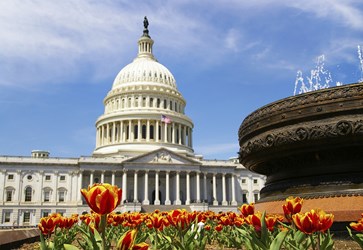Burwell Accused Of Contempt Before Senate Finance Committee

By Christine Kern, contributing writer

HHS Secretary Sylvia Burwell stonewalls on response to the King v. Burwell case.
During a hearing before the Senate Finance Committee concerning the HHS department budget, Secretary Sylvia Burwell was accused of contempt by Senator John Cornyn for stonewalling when asked about the agency’s planned response to the pending King v. Burwell case before the Supreme Court.
CBS News reports that, during the hearing, Cornyn asked Burwell, “If the administration loses in the King v. Burwell case, do you believe you already have the authority to make an administrative fix, or will you come to congress to ask for additional legislation?” Burwell replied she was convinced the law would stand and therefore was planning for implementation, and that the agency is focused on the final days of open enrollment and the anticipated surge that will accompany it.
Cornyn took Burwell’s response as a sign of refusal to answer and appealed to Senator Orrin Hatch, the chairman of the Senate Finance Committee, stating that for Burwell “to come here and repeatedly refuse to answer the questions strikes me as nothing less than contempt of our oversight responsibility.”
According to The State, Hatch also challenged Burwell for her responses but later stated in response to Cornyn's remarks, “I think he was making a point.” Senator Ron Wyden defended Burwell for not answering hypothetical questions.
The contentious King v. Burwell case has the potential to radically affect the standing of the ACA, since it will ultimately decide whether or not federal subsidies may be used for individuals purchasing insurance through federally-run healthcare exchanges.
If the Supreme Court decides in favor of King, it could result in 8.2 million low- and middle-income individuals in 34 states losing access to subsidies worth $28.2 billion, according to an analysis by the Urban Institute. Those beneficiaries are disproportionately located in conservative states that haven't embraced the federal healthcare law.
